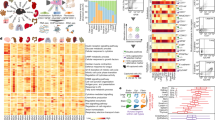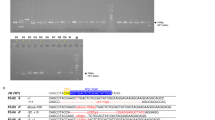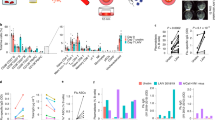Abstract
A REVIEW of intercurrent ectromelia infection in mouse colonies in Great Britain has been made by Tuffery1. During April 1955 a virulent form of the disease became manifest among all three main strains, R III, A and CBA, bred in this laboratory. The establishment and growth of transplantable tumours in vivo and in vitro concurrently deteriorated, and a connexion with the outbreak of the disease was suspected. In consequence, a programme of vaccination with calf lymph was instituted, as suggested by Lane-Petter2. This communication records the results of this procedure carried out over a period of two years.
This is a preview of subscription content, access via your institution
Access options
Subscribe to this journal
Receive 51 print issues and online access
$199.00 per year
only $3.90 per issue
Buy this article
- Purchase on Springer Link
- Instant access to full article PDF
Prices may be subject to local taxes which are calculated during checkout
Similar content being viewed by others
References
Tuffery, A. A., Vet. Rec., 68, 478 (1956).
Lane-Petter, W., Supp. Memor. to Lab. Anirn. Bur. News Letter No. 6 (1953).
Author information
Authors and Affiliations
Rights and permissions
About this article
Cite this article
PEARSON, A. Attempted Control of Ectromelia in a Mouse-breeding Colony. Nature 180, 1300–1301 (1957). https://doi.org/10.1038/1801300b0
Issue Date:
DOI: https://doi.org/10.1038/1801300b0
Comments
By submitting a comment you agree to abide by our Terms and Community Guidelines. If you find something abusive or that does not comply with our terms or guidelines please flag it as inappropriate.



